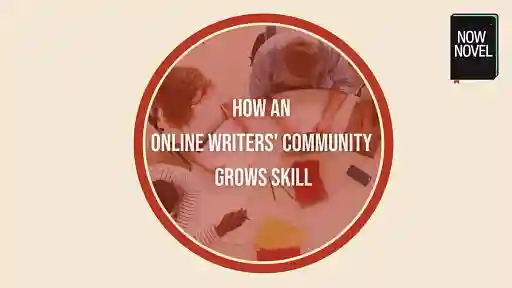Writing mentors wear many hats, like the Greek Goddess Athena who disguises herself an an old tutor named 'Mentor' in Homer's Odyssey. Read 8 benefits of working with a mentor, according to authors:
Writing mentors share:
- Spaces for writing feedback and growth
- Insights that shift thinking and action
- Forums for breakthroughs
- Help establishing good process
- Encouragement with caveats
- Useful writing exercises
- Precise advice
- Guidance with the business of writing
Let's explore the benefits of working with mentors further:
Spaces for writing feedback and growth
Writing can be an isolated and isolating process.
A writing coach helps to make it more communal, with the benefit of feedback and accountability.
In writing classes and courses, and in one-on-one coaching, you learn from educators who learn, in turn, from each mentee.
Nobel-winning author Kazuo Ishiguro describes the benefits of mentoring and discussion groups in The Paris Review:
I was slightly taken aback when I was accepted [into the University of East Anglia's MFA with Malcolm Bradbury], because it suddenly became real. I thought, these writers are going to scrutinize my work and it’s going to be humiliating.
Kazuo Ishiguro, interviewed by Susannah Hunnewell in The Art of Fiction No. 196, The Paris Review
Ishiguro proceeds to describe how he found, instead of a humiliation, a space for feedback and growth:
I couldn’t think of what to write next. Whereas when I wrote about Japan, something unlocked. One of the stories I showed the class was set in Nagasaki at the time the bomb dropped, and it was told from the point of view of a young woman. I got a tremendous boost to my confidence from my fellow students. They all said, This Japanese stuff is really very exciting, and you’re going places.
Insights that shift thinking and action
In Sir Terry Pratchett's A Hat Full of Sky, a book set in his Discworld universe for younger readers, Pratchett creates a scenario that shows how mentors often catalyze new thoughts and actions:
Tiffany has been apprenticing as a witch by visiting people in need with her mentor. After meeting with one particularly sad case, she tells her mentor, "It shouldn't be like this." Her mentor replies, "There isn't a way things should be. There's just what happens, and what we do."
Terry Pratchett, A Hat Full of Sky (2004).
The focus on pragmatics - what we do when life happens, when stories happen (or cease to happen) - is true for how writing mentors help. 'Try this', they may say, or 'Have you thought instead about that?'

Forums for breakthroughs
Writers often speak about their teachers and writing mentors in terms of facilitation.
Teachers - good teachers - are often able to facilitate breakthroughs when we face an impasse.
Pat Barker describes attending a writing course where one such breakthrough occurred:
I wrote part of Union Street while I was there [at a course run by the Arvon foundation]. Toward the end of the book, where there’s the miners’ strike and the two old ladies who are on opposite sides, I wrote that there. It was part of an exercise, actually. So it was a breakthrough moment for me, but I think the Arvon courses are breakthrough moments for a lot of writers.
Pat Barker, interviewed by Valerie Stivers, 'The Art of Fiction No. 243', The Paris Review (2018)
The breakthrough was of course Barker's own - the collaborative, stimulating environment for discussion and writing exercises Parker describes was created by writing mentors including author and creative writing teacher Angela Carter.
Help establishing good process
Another thing writing mentors do is help with establishing or finessing your writing process.
Before you can whittle a manuscript into a moving, thrilling and/or hilarious story, you need a process - any process - that helps you produce material consistently.
Whether creating distraction-free writing spaces (physically or online) or providing writing plan templates or guidance, writing mentors facilitate building writing habits.
Nancy Krulik describes how a writing mentor - an elementary teacher - fostered a practice she carried with her into her adult writing life:
Miss Zuczek was the kind of teacher who set up beanbags in the back of the room where children could curl up and read when they had finished their work, surrounded by hanging plants and fish tanks. Her classroom was the first place that I discovered daily journaling, a skill that helps me with my writing to this day. She was the one who introduced me to Tolkien and Jack London, and the idea that there were amazing worlds beyond my little suburban town that I could both visit and, someday, even create.
Nancy Krulik, quoted in '7 Authors Celebrate the Teachers They’ll Never Forget', Brightly Editors
Encouragement with caveats
Another benefit of having a writing mentor is you have someone to provide encouragement, but not the uncritical or 'telling you what you want to hear' kind.
The value of this honesty is something our mentees and alumni have mentioned when describing their experience with Now Novel.
An honest educator will encourage while also issuing necessary cautions or caveats. They may help you notice particular gremlins in your writing style that recur, or warn you of the tough parts of writing professionally.
This is what Elizabeth Hardwick, founder of the New York Review of Books did for author and essayist Elizabeth Benedict:
During one meeting, I reported that a Columbia professor had encouraged me to be a writer, and I shyly asked if she agreed with him.
"I think you can do the work," [Hardwick] said kindly, "but you have to decide if you want such a hard life."
Elizabeth Benedict, "Why not say what happened?" Remembering Elizabeth Hardwick, in Mentors, Muses & Monsters: 30 Writers on the People Who Changed Their Lives (2012), p. 14.
Useful writing exercises
Since writing mentors spend their time helping authors to unlock creativity and piece together their ideas, many set writing exercises as aids toward these ends.
In Elizabeth Benedict's compilation of authors' words on their teachers, John Casey describes how French author Gustav Flaubert took Guy de Maupassant (regarded as one of the fathers of the modern short story) under his wing.
Writes Casey:
I've heard that Flaubert set Maupassant a useful exercise. The two of them used to sit at an outdoor café, I think in the early evening. Lots of the same people passed by every day. Flaubert had Maupassant write one-sentence descriptions. The next day, if Flaubert picked out the right people, Maupassant got a gold star.
John Casey, in Mentors, Muses and Monsters, p. 40.

Precise advice
A writing mentor is someone who will also offer you precise advice, specific to your challenges and intentions.
When you work with an experienced author or editor (and teacher), this advice is drawn from deep familiarity with the devices, challenges and process of writing.
Alexander Chee shares precise advice he received from author Annie Dillard, which he recalled almost verbatim due to its precision:
You want vivid writing. How do we get vivid writing? Verbs, first. Precise verbs. All of the action on the page, everything that happens, happens in the verbs. The passive voice needs gerunds to make anything happen. But too many gerunds together on the page makes for tinnitus: Running, sitting, speaking, laughing, inginginginging. No. Don't do it.
Annie Dillard, paraphrased by Alexander Chee in Mentors, Muses and Monsters.
Guidance with the business of writing
Another, crucial aspect of process and the writing life writing mentors may help with is the business of writing. Advice on what to send agents, for example (and what not to send, too).
Creating a business plan for your writing is another. A thorough explanation of publishing process (and its typical timelines).
In the same interview with Kazuo Ishiguro mentioned above, he describes the help author and educator Angela Carter was with the professional side of writing life:
After Malcolm Bradbury, my other important mentor was Angela Carter, who taught me a lot about the business of writing. She introduced me to Deborah Rogers, who’s still my agent today. And Angela sent my stuff to Bill Buford at Granta without telling me. There was a pay phone in the kitchen in the flat I was renting in Cardiff. One day it rang, and I thought, This is odd, the pay phone is ringing, and there was this man Bill Buford at the other end.
Ishiguro, The Art of FIction No. 196.
Who is the best writing teacher you ever had, or who encouraged your passion for stories? Share in the comments below.
Work with a coach in an intimate group and finish your book this year on Now Novel's Group Coaching course.










This was such an insightful article! I don't have one mentor in particular (although that would be the dream) but I love drawing advice and inspiration from resources such as this
Natasha - About 4 years ago
Thank you, Natasha, I'm glad you enjoyed reading this. Thank you for sharing your thoughts and feedback :)
Jordan - About 4 years ago